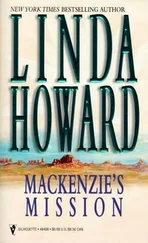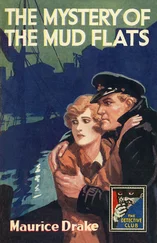William Landay - Mission Flats
Здесь есть возможность читать онлайн «William Landay - Mission Flats» весь текст электронной книги совершенно бесплатно (целиком полную версию без сокращений). В некоторых случаях можно слушать аудио, скачать через торрент в формате fb2 и присутствует краткое содержание. Жанр: Триллер, на английском языке. Описание произведения, (предисловие) а так же отзывы посетителей доступны на портале библиотеки ЛибКат.
- Название:Mission Flats
- Автор:
- Жанр:
- Год:неизвестен
- ISBN:нет данных
- Рейтинг книги:3 / 5. Голосов: 1
-
Избранное:Добавить в избранное
- Отзывы:
-
Ваша оценка:
- 60
- 1
- 2
- 3
- 4
- 5
Mission Flats: краткое содержание, описание и аннотация
Предлагаем к чтению аннотацию, описание, краткое содержание или предисловие (зависит от того, что написал сам автор книги «Mission Flats»). Если вы не нашли необходимую информацию о книге — напишите в комментариях, мы постараемся отыскать её.
Mission Flats — читать онлайн бесплатно полную книгу (весь текст) целиком
Ниже представлен текст книги, разбитый по страницам. Система сохранения места последней прочитанной страницы, позволяет с удобством читать онлайн бесплатно книгу «Mission Flats», без необходимости каждый раз заново искать на чём Вы остановились. Поставьте закладку, и сможете в любой момент перейти на страницу, на которой закончили чтение.
Интервал:
Закладка:
‘She’d have kicked his ass,’ I said.
Here is my mother: Around 1977 or so, on a raw morning in early spring. The weather was damp. In our kitchen that morning, you could sense the dankness outside, the smells of rain and mud. Mum was at the table, reading a hardcover book. She was already dressed, her hair gathered at the back of her neck exposing the empty dimple-holes in her pierced ears. I was at the table too. And before me, my preferred breakfast of the moment, Apple Jacks and a glass of milk. The glass was a concession from my mother, who’d recently given up trying to force me to drink the unpotable milk in the bowl, with its filmy emulsion of cereal scum. There was still a lingering self-consciousness between us over this tiff. I had the strongest urge to drink the soiled milk for her, but I couldn’t quite do it. (Those amoeboid globules of Apple Jacks oil…)
‘What are you reading?’
‘A book.’
‘What book?’
‘A grown-up book.’
‘What’s it called?’
She showed me the cover.
‘Do you like that book?’
‘Yes, Ben.’
‘Why do you like it?’
‘Because I’m learning.’
‘About what?’
‘It’s a history book. I’m learning about the past.’
‘Why?’
‘Why what?’
‘Why would you want to learn that?’
‘To be better.’
‘Better than what?’
She looked at me. Blue-gray eyes, laugh lines. ‘Just a better person.’
Dad pulled up in his truck. The overnight shift was supposed to go from midnight to eight, but Dad always seemed to get home earlier. I heard him hawk his throat before coming inside. He sat down at the table with little mute greetings for Mum and me.
Look! I shot a glance at Mum: Does he know? There was a white patch in Dad’s bushy brown hair! Right at the top of his forehead! It was white powder, like baby powder, I guessed. Mum, do you see it?
‘Dad, there’s-’
‘Ben.’ My mother gave me a stern look to shut me up.
Dad said, ‘What is it, Ben?’
‘Um, nothing.’
Mum’s face had gone a little white too. Her lips compressed into a line.
Dad offered around a box of doughnuts from the Hunny Dip doughnut shop in town. On the box was a cartoon of a brown honey pot brimming with thick, golden ooze. A doughnut floated in midair above the jar, dripping with the stuff. Dad said, ‘Here. From Hunny Dip’s, like you like.’
‘No, thank you.’
‘Go on, Anne. It won’t kill you.’
‘No, Claude.’ You could tell from Mum’s voice she was angry about him bringing home those doughnuts.
I helped myself to a chocolate glazed, which pleased him. He cupped my jaw in his thick-fingered paw and shook it. His fingers had a weird, tangy chlorine smell. There was, I noticed, more white powder on his shirt cuff.
‘Attsaboy It’s just a doughnut, for Christ’s sake.’
‘Don’t touch him, Claude.’
‘Don’t touch him? Why not?’
Her blue eyes were squinched half-shut, as if she wanted to deny her husband the pleasure of looking into them. ‘Ben, take your doughnut and go in the other room.’
‘But I’m not done yet-’
‘Ben.’
‘What about my cereal?’
Dad said, meekly, ‘You better go, Ben.’
My mother was a small woman, maybe five-two and thin. But somehow she was able to dominate her husband. He seemed to enjoy submitting to her too. It was a game, a little joke of his: Of all the people to boss around big Claude Truman, this little spitfire…
When I was safely out of the room — and eavesdropping from the TV room next door — I heard her say, ‘- my house.’
‘What?’
‘I said, get out of my house now.’
‘Annie, what the hell’s wrong with you?’
‘Claude, there’s powdered sugar in your hair. This is a little town, Claude. Did you have to rub my face in it?’
‘Rub your face-’
‘Claude, don’t. Don’t talk to me like I’m stupid, like I’m the only one who doesn’t know. I am not stupid, Claude.’
I did not really understand what was going on that morning, but I knew — I think I always knew — their relationship was a precarious one. Dad’s temper, his rabbity sexual habits, his ego, and Mum’s own strong personality all made for a volatile marriage. Not a bad marriage, but an inconstant one. Sometimes they acted like lovers; they disappeared upstairs on Sunday afternoons for naps or kissed on the lips or laughed over obscure incidents in their secret history. Other times, the strain between them was obvious, like the creaking of a rope under a heavy load. As a kid I assumed this was what true love looked like — that love was inherently unstable above a certain temperature.
I pushed the door open a crack to spy and was immediately seen.
Dad spotted me — wide-eyed, the doughnut glutinizing in my fingers — and something, some small breath of shame, went out of him. To my astonishment, he surrendered to Mum immediately, asking only, ‘How long till I can come back?’
‘Until I’m ready’
‘Annie, come on. Just tell me how long.’
‘A week. Then we’ll see.’
‘Anne, where am I supposed to go? I’m exhausted.’
‘Go to the station. Go wherever you want, I don’t care. Except the doughnut shop.’
Later that morning, after Dad had gone, Mum took me into town to return the box of doughnuts. Dad’s friend Liz Lofgren was behind the counter that morning, and Mum waited until the store was empty to inform Liz that she’d better have nothing more to do with Chief Truman if she knew what was good for her. Liz pretended not to understand for a minute, but when Mum said, ‘You don’t want to be on my wrong side,’ Liz seemed to agree.
Anne Wilmot Truman was raised in Boston, and the imprint of that city stayed with her. It was in her voice, in the mangled r s and odd archaic colloquialisms (she always called soda tonic; the dry cleaner, the cleanser; milk shakes, frappes). But the deepest impression was left by her father, a striver named Joe Wilmot.
Joe had clawed his way up from a Dorchester tenement. In the 1930s and ’40s he built a small chain of grocery stores in Boston, a respectable success if not a spectacular one. It was enough to propel him out to the suburbs, anyway. But even after he’d made it, Joe could never quite shake the sense that his new neighbors — all those WASPy Juniors and The Thirds with their tennis games and rumpled clothes — possessed something he did not, something more than money. It was an attitude more than anything else, a sort of at-homeness among the big green lawns and tree-shaded streets. For lack of a better word Joe called it ‘class,’ and he knew it would always be out of his reach. Of course, this is the frustration of arrivistes everywhere. They cannot acquire ‘class’ because they cannot envision themselves having it. It is a failure of the imagination. They are anti-Gatsbys.
So Joe did what would-be Gatsbys have so often done: He tried to inculcate the elusive stuff in his only daughter. After all, this was Boston in the age of that real-life Gatsby, Joe Kennedy. And what had Old Man Kennedy learned if not that class is granted only to the second generation? So Joe Wilmot sent Annie to a private school, and when he deemed the education there inadequate, he made up the difference by paying her directly for educating herself: nickels and dimes for good posture, for reading Yeats or Joyce, for teaching herself a Mozart lied on the piano. The payola did not stop when she got older either. Right through the Winsor School and Radcliffe — between ballet recitals and voice lessons and a semester in Paris — Annie could always earn a buck or a fin by reciting a speech from Shakespeare or some other feat of cultivation. It was a game father and daughter played on the road to refinement.
Читать дальшеИнтервал:
Закладка:
Похожие книги на «Mission Flats»
Представляем Вашему вниманию похожие книги на «Mission Flats» списком для выбора. Мы отобрали схожую по названию и смыслу литературу в надежде предоставить читателям больше вариантов отыскать новые, интересные, ещё непрочитанные произведения.
Обсуждение, отзывы о книге «Mission Flats» и просто собственные мнения читателей. Оставьте ваши комментарии, напишите, что Вы думаете о произведении, его смысле или главных героях. Укажите что конкретно понравилось, а что нет, и почему Вы так считаете.












